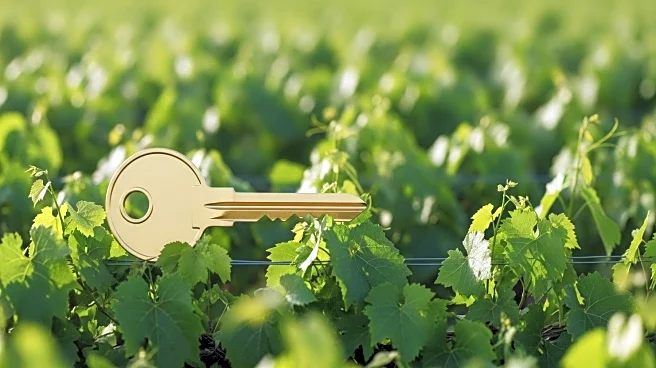What is the story about?
What's Happening?
Prof. Kennedy Dzama, a distinguished expert in animal breeding and genetics, has been appointed as the new Dean of the Faculty of AgriSciences at Stellenbosch University (SU), effective January 1, 2026. Dzama, who has been serving as Vice-Dean for Research, Innovation, and Postgraduate Studies, will succeed Prof. Danie Brink. His academic journey includes a BSc Agriculture (Hons) from the University of Zimbabwe and advanced degrees from Texas A&M University. Dzama is recognized for his pioneering research in African animal genetics, focusing on parasite resistance and climate-resilient livestock systems. His leadership at SU has fostered interdisciplinary programs in Food Systems and Sustainability, earning international partnerships with institutions like Wageningen University and Oxford University.
Why It's Important?
Dzama's appointment is significant for advancing research and innovation in sustainable agriculture, particularly in the context of climate change and food security. His expertise in animal genetics and sustainable production systems positions SU as a leader in addressing these critical challenges. Dzama's role in mentoring over 60 postgraduate students and his contributions to academic program development across Southern Africa highlight his commitment to shaping the next generation of scientists. His leadership is expected to enhance SU's global partnerships and interdisciplinary solutions for agricultural challenges.
What's Next?
As Dean, Dzama aims to lead the Faculty of AgriSciences with a focus on research excellence, teaching, and community impact. His vision includes expanding SU's influence in global agricultural research and policy development. Dzama's leadership is anticipated to strengthen SU's collaborative networks and interdisciplinary programs, further positioning the university as a hub for innovative solutions in agriculture.
Beyond the Headlines
Dzama's appointment underscores the importance of interdisciplinary approaches in addressing agricultural challenges. His work in climate resilience and sustainable production systems reflects broader trends in academia towards integrating diverse fields to tackle complex issues like food security. Dzama's leadership may inspire similar initiatives in other institutions, promoting a holistic approach to agricultural research and policy.















